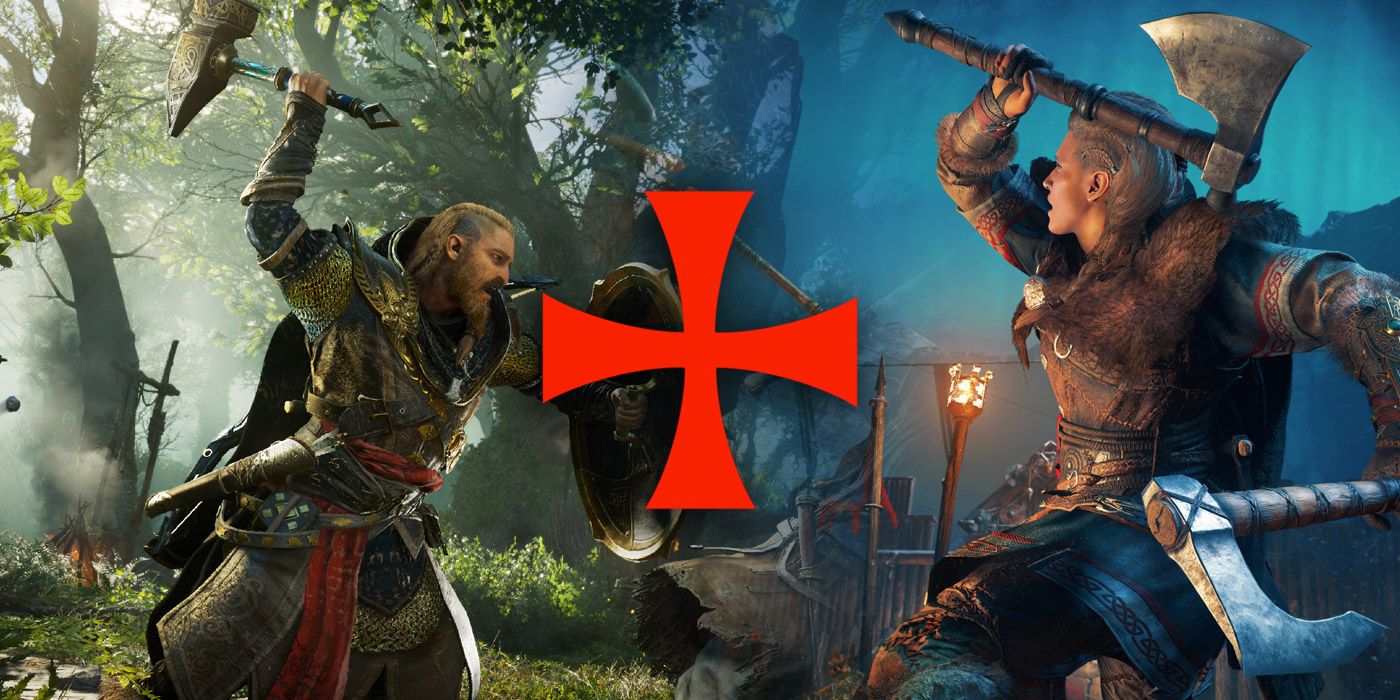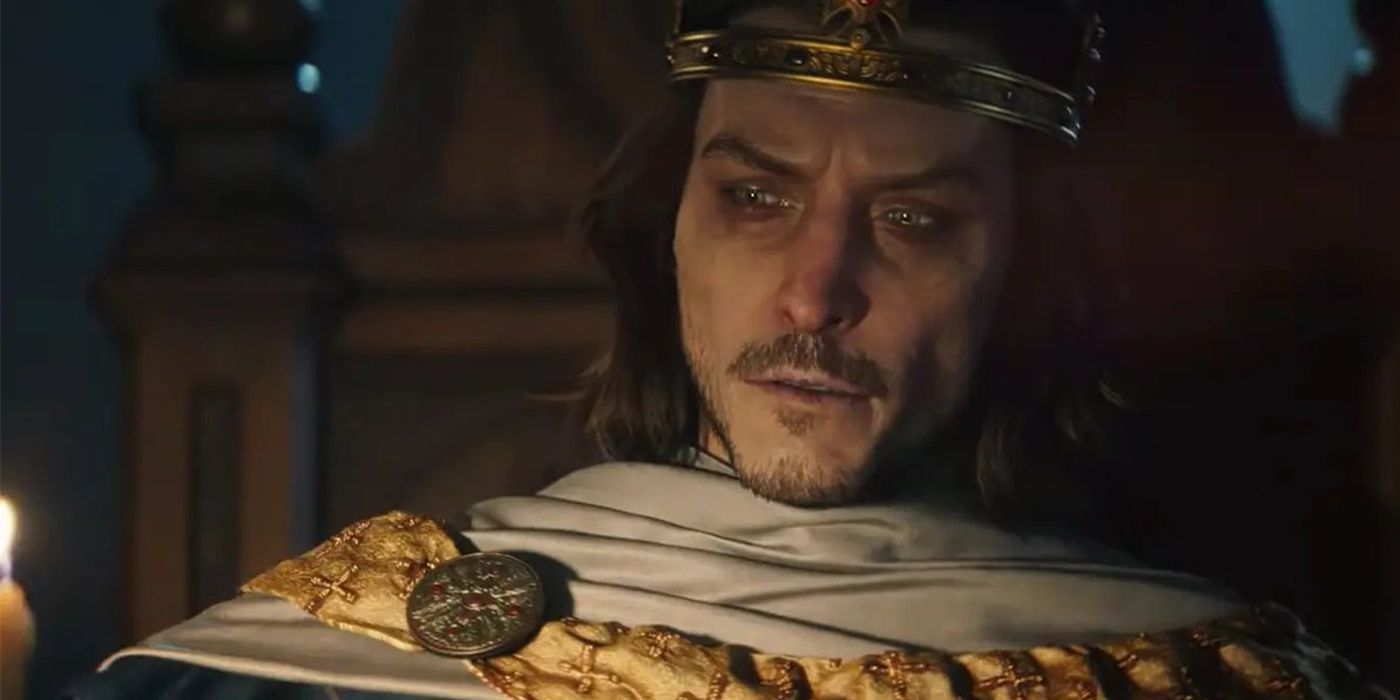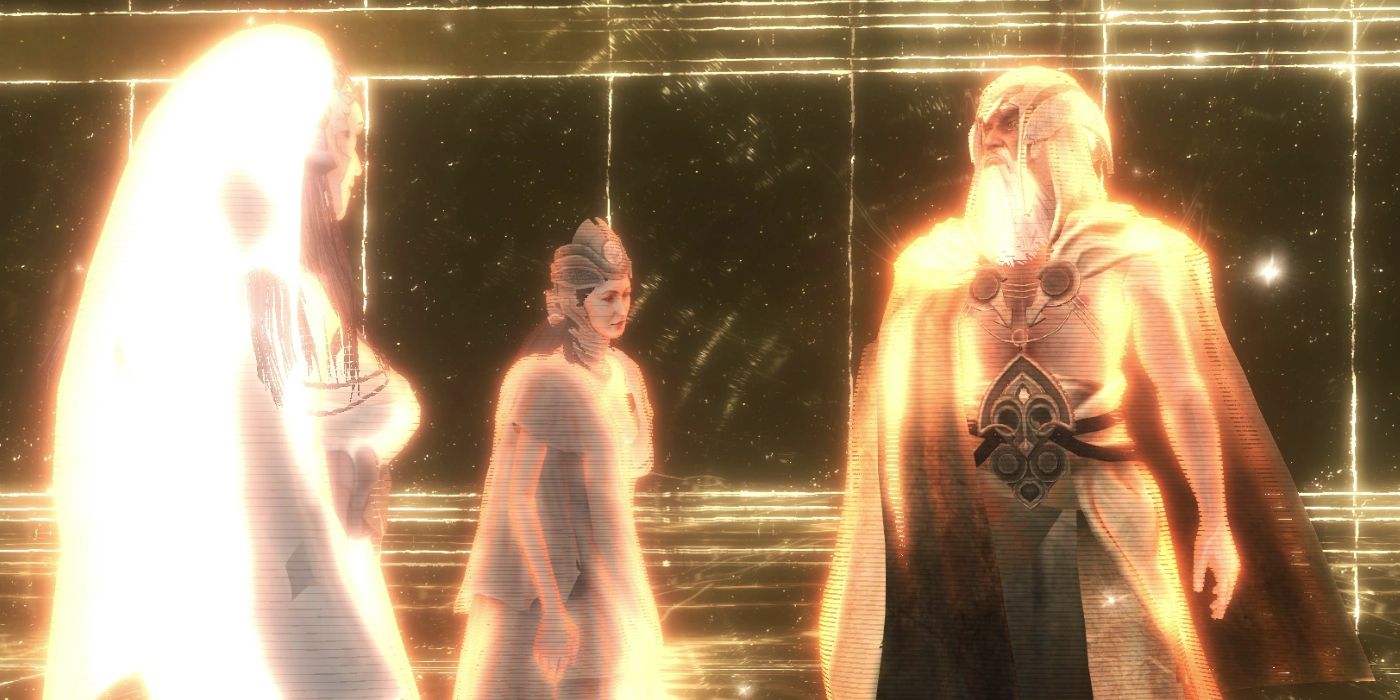Assassin's Creed Valhalla technically has more than one ending, as Eivor has multiple main objectives throughout the game. There's the effort to find allies throughout (or otherwise explore) all of England, the main storyline concerning Eivor, Sigurd, and Basim, and of course, there's Eivor's ongoing mission to rid England of the Order of the Ancients. PLEASE NOTE: MASSIVE SPOILERS AHEAD.
As many players have discovered, completing the Order menu by eliminating every target—save the Grand Maegester—triggers an ending to Eivor's Order hunt. In so doing, the origins of the future Templar Order are also established; as it turns out, Eivor and the Hidden Ones help pave the way for the Templars' rise. Let's take a look at how, exactly, Assassin's Creed Valhalla establishes the Templar Order.
Poor Fellow-Soldier of Christ
After Eivor clears every Order member from England, Hytham will receive another note from a "Poor Fellow-Soldier of Christ," inviting Eivor to a location where the identity of the Grand Maegester of the Order of the Ancients will be revealed. By this time, most players probably have a decent idea of who the Grand Maegester is on their own, but either way, the Maegester's identity is revealed to be none other than King Aelfred himself. Having escaped the final battle between the Norse and soldiers of Wessexe, Aelfred is living a simple peasant's life in the swamps of England by this epilogue.
Not only that, but Aelfred is the one behind the "Poor Fellow-Soldier of Christ" notes. As it turns out, Aelfred didn't come by the role of Grand Maegester voluntarily; he inherited it from his father and brother, much to Aelfred's own displeasure. Being a pious man of God, Aelfred resented the existence of an Order that worshipped the Isu (the precursor race of Assassin's Creed) as lesser gods, and deemed them heretical. Thus, Aelfred hatched a plan to destroy the Order of the Ancients from the inside and part of that involved sending notes to Eivor and Hytham as a "Poor Fellow-Soldier of Christ."
Eivor and Aelfred's conversation in the swamps of England is a peaceful one, and Aelfred willingly gives up his Order medallion for Eivor to bring back to Hytham as proof of the Order's destruction. However, Aelfred's words hint not just as an end, but a new beginning; he gives Eivor the key to his old study and remarks that in place of the old Order, he will build "a universal, divine order, inspired by God for the betterment of man." Eivor, in turn, replies, "With a Poor Fellow-Soldier at its head."
Anyone well-versed in historical knowledge may recognize the reference: the Knights Templar were also referred to as "the Poor Fellow-Soldiers of Christ." Therefore, Eivor and Aelfred's conversation is a gigantic clue that Aelfred himself intends to found the Templar Order. After conversing, Eivor can travel to Aelfred's study and unearth a series of documents that tell more of his plans, including his desire for a Christian group to control society.
And that's essentially the explanation thus far for how the Templars will come to be: they form in the wake of the Order's destruction, made in alignment with Christianity, not to worship the Isu but God instead. Of course, we know this doesn't necessarily remain the case in the future, as the Templars of other Assassin's Creed games still very much covet Isu artifacts (Pieces of Eden) and seek to use them to further their goals. Aelfred maintains in conversation with Eivor that the Ancients were not incorrect in their pursuit of world order, but simply went about it the wrong way. It makes sense, therefore, that the Templars maintain this goal throughout their own history, though there doesn't seem to be anything particularly pious about those desires as Aelfred seems to hope.
Aelfred claims that the Templars will abandon their reverence of the Isu, seeking to control and bring order to the world through Christianity. And at face value, perhaps they do; this would be a more accurate portrayal of the actual Knights Templar. It looks like, however, that despite Aelfred's influence, the Templars don't manage to shake their reliance on the Isu - or, at the very least, their desire to control Isu technology.
Eivor's conversation with Aelfred does also predict future events in the history of England. "In time, all those who accept God will flourish," Aelfred says, "and all those who defy Him will fall away. Should you remain in England, you too will one day be her subject." And in English history, Christianity does spread, with many Vikings adopting it to better fit into their new homeland. It's unclear if Eivor will ever do the same; she certainly don't seem the type. Given that the DLC for Valhalla take place in Ireland and France, so perhaps Eivor simply doesn't stay in England.
It's possible that future Assassin's Creed Valhalla content will continue Aelfred's ambitious journey to form the Templars. It's also possible that the direct results of Aelfred's efforts will be reflected in future Assassin's Creed titles, since the next chronological game takes place hundreds of years later. Whatever happens next in the Assassin's Creed universe, fans of the franchise finally have a concrete idea of how the Templar Order was formed, and a look at the slow transition from the Order of the Ancients to the Templars.
Assassin's Creed Valhalla is available for PC, PlayStation 4, PlayStation 5, Stadia, Xbox One, and Xbox Series X/S.



